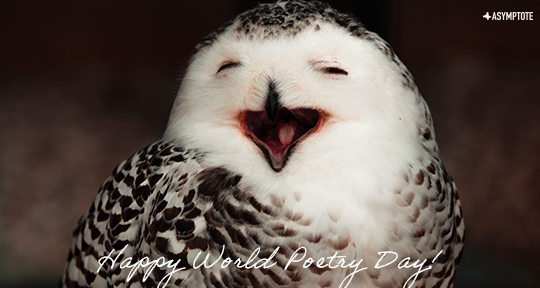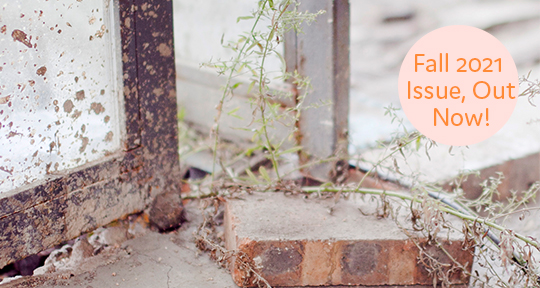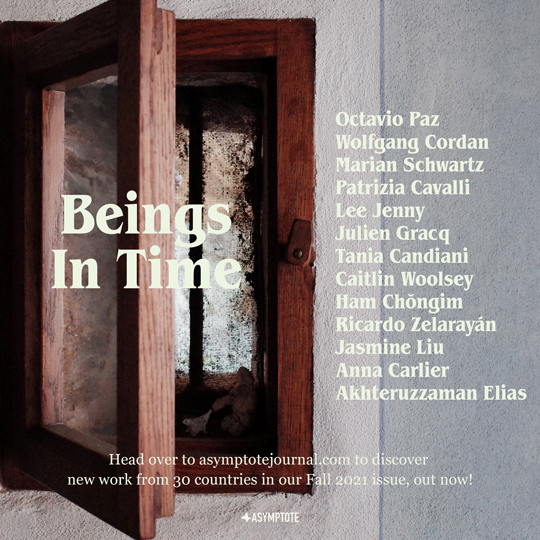Asymptote’s Fall 2021 issue is here, featuring new work from thirty countries and nineteen languages! To help guide you through the latest issue, our blog editors are offering their top recommendations.
The Fall 2021 issue transcends the boundaries of culture and time through foreign encounters, explorations of personal and cultural memory, and novel ways of approaching the act of translation. One of the themes that emerges from this wide-ranging and deeply probing issue is the transformative potential of speech, song, and music. In the title story of Ham Chŏngim’s 2015 story collection, “After Dinner,” music, whether sung, played, or imagined, stirs memories of joy and loss for the central character, Sunnam, a blocked writer hosting a dinner party in Pusan with the death of her close mentor, P., on her mind. The piece is elegantly translated by Bruce and Ju-Chan Fulton, who capture the author’s hushed yet lyrical tone, while eruditely rendering this piece’s many intertextual and cross-cultural references to Western authors and music. Like James Joyce’s The Dead, which is aptly referenced at its start, the symphonic piece interlaces multiple threads of memory like different strains of melody within Sunnam’s roving mind while she prepares for the dinner party. These threads are related through their transformative encounters with music, moments of intimate connection, and losses of beloved people from her life. Her meditations suggest the fickleness of memory—both the ways it disappears and the ways it lingers. The fleeting quality of memory is evoked when Sunnam reflects on the first time she used her candlesticks for a party: “The memory of that first time comes tantalizingly close and then poof, it’s gone. But finally it comes back . . .” Through the intricate paralleling of narrative threads, Chŏngim maps Sunnam’s vast interior world across time and place, conjuring a textured history of love and loss within just the few hours before her party.
The transformative possibility of speech and song is also central to Caitlin Woolsey’s intimate account of translating spoken and sung poetry in “If my heart were a stone, it would drop down to meet you”: Bedouin Oral Poetry and Translation as Reciprocity, a featured piece in this issue’s edition of “Brave New World Literature.” Woolsey describes her experience translating and documenting Jordanian Bedouin oral traditions, while living with an extended family from the Zawaideh tribe in the village of Disah. The genre-bending piece combines memoir, critical analysis, and meditations on the practice of translation to form an illuminating inquiry into Bedouin oral traditions. Woolsey is perceptive yet culturally sensitive in her readings of these poems—noticing, for example, the poems’ practice of employing generalized descriptive language and recurring symbols and characters. She does not dismiss this practice as repetitive or uncreative, but links it to the communal function of the poems, which are recited and must therefore participate in certain descriptive traditions to be understood and retold by its listeners. In this manner, Woolsey performs important critical work by situating this historically overlooked literature within its people’s culture and history. One of the most moving aspects of this piece is the way that oral poetry functions not only as a means of personal creative expression, but as a vital repository for these tribes’ memory and history, a method of preservation for a “historical and cultural record” in the face of erasure by time and modernization. READ MORE…





